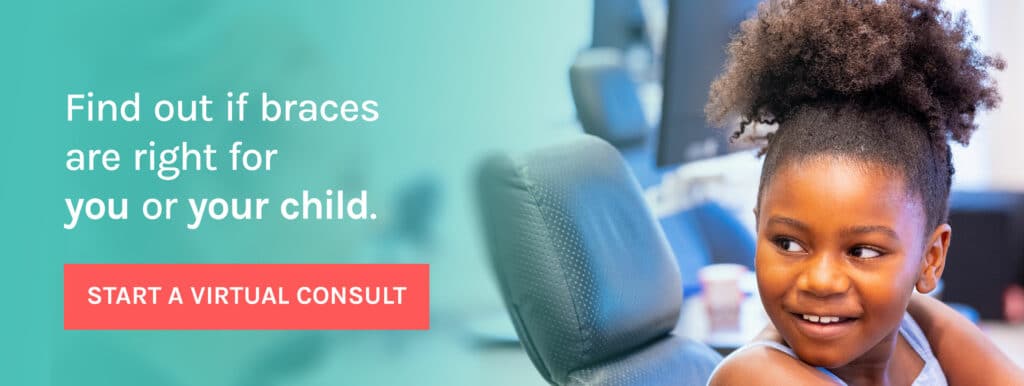Did you know your teeth can affect your speech? Misaligned teeth can cause speech problems that can linger into adulthood without proper treatment. Your speech depends partly on where your tongue is placed on your teeth. If your teeth are crooked, your tongue won’t hit them properly. This can cause a lisp, slurring certain words or letters, and even a whistling sound when speaking. Orthodontic treatment with braces or Invisalign can fix your crooked teeth and bad bite called malocclusion. It can also improve your speech.
Sacks Orthodontics is used to transform smiles and give confidence to our Livingston, NJ, patients by giving them a beautiful smile. But we also give confidence in our patients by making it easier for them to speak without a speech impediment. While orthodontics isn’t the solution for every speech impediment, it can improve speech in many cases. How is this possible? The answer might surprise you!

What is a speech impediment? It’s when the tongue, mouth, jaw, and vocal tract do not work together correctly when forming certain sounds or even full words. A speech impediment can be genetic or physical, such as a cleft palate, a tongue tie, a misaligned bite, or crooked teeth.
There are several types of speech impediments. They include:
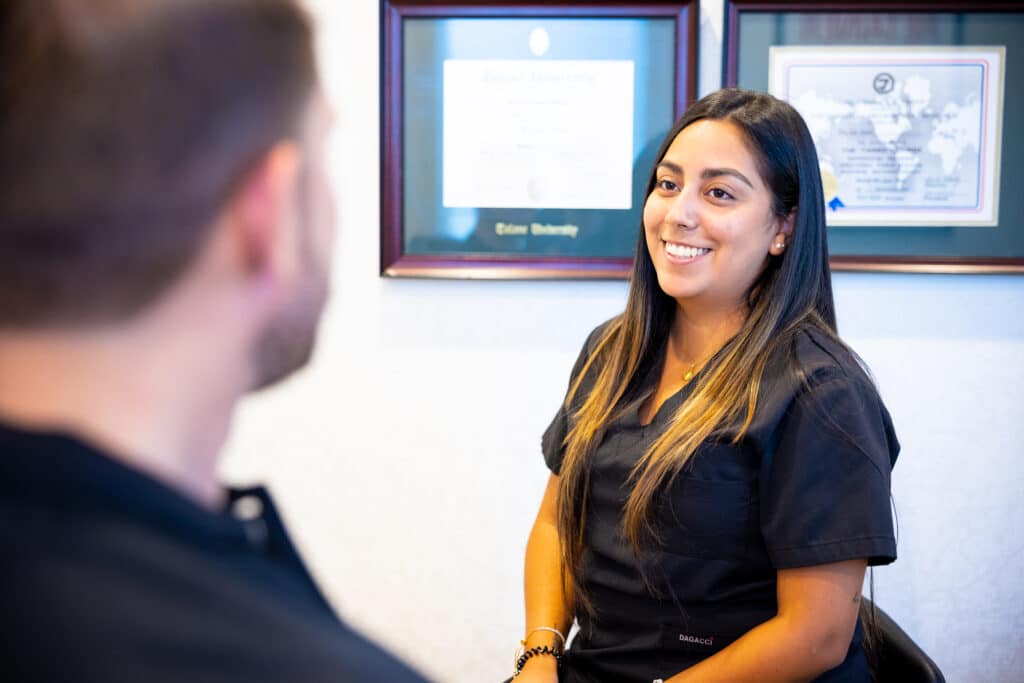
Speech impediments can have a variety of causes, from cleft palates to birth defects to brain damage from an accident or injury. Many things go into speech, and it all must be coordinated correctly. Your brain not only processes the information, but it also must coordinate the nasal cavity, lungs and diaphragm to supply the air to move through the vocal cords. The lips and tongue must move into certain positions, which may include touching the hard palate, the soft palate, or the teeth. If anything breaks down in any one of these movements, a speech impediment can result.
How do the teeth affect a speech impediment? Your tongue must touch your teeth in a certain way, and your lips must move around your teeth in a certain way to speak clearly. Your teeth also control the air flow to make certain sounds, such as a soft “g” or “j.” When the teeth are out of place, the tongue and lips don’t form the sounds correctly, resulting in a lisp, a whistle, or other speech impediments.
Orthodontics can correct these problems by straightening your teeth and realigning your bite. With your teeth in the proper places, your tongue can hit them as it should. Will your speech impediment clear up immediately with orthodontics? Not necessarily. In some cases, speech therapy may be necessary to retrain the tongue to fall where it should. However, you will probably notice at least some change by the end of your treatment.
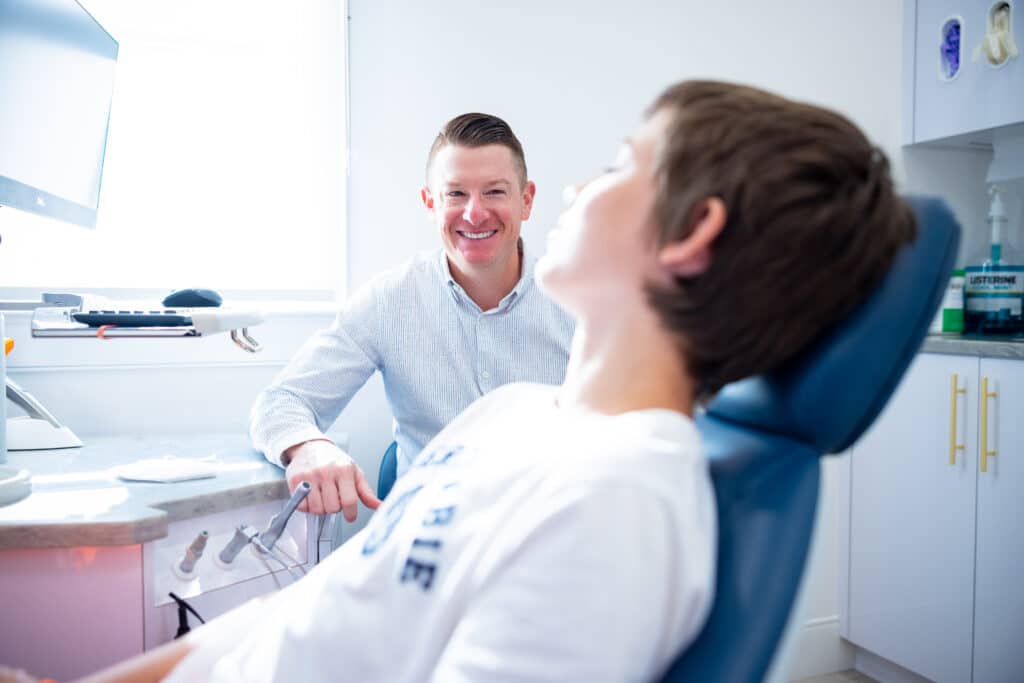
We’ve said that braces can fix a speech impediment, such as a lisp. Did you know that Invisalign can also fix a lisp? Both braces and Invisalign can straighten your teeth and improve your tongue’s ability to create certain sounds, including “s, z, th” and “d.”
Lisps or whistling are often the products of an overbite or an open bite. An overbite is where the front upper teeth sit far forward of the front lower teeth. The extra space causes a disruption in the airflow and can cause a mispronunciation of consonants or a whistling sound. Other problems pronouncing consonants can be caused by an underbite, crossbite, or teeth crowding. An open bite, where the front teeth jut outward and form a gap between the top and bottom teeth, can also cause problems with consonants. Orthodontics can take care of all of these dental issues.
Slurred speech can be caused by a lack of proper space in the mouth. This can be corrected in children using two-phase orthodontic treatment. We can use appliances such as spacers or a palate expander to make proper room in the mouth for permanent teeth. Then, we come back a few years later with braces or Invisalign to correct any crooked teeth, overbite, or other dental issues. Slurring can also be improved in adults with the proper orthodontic treatment.
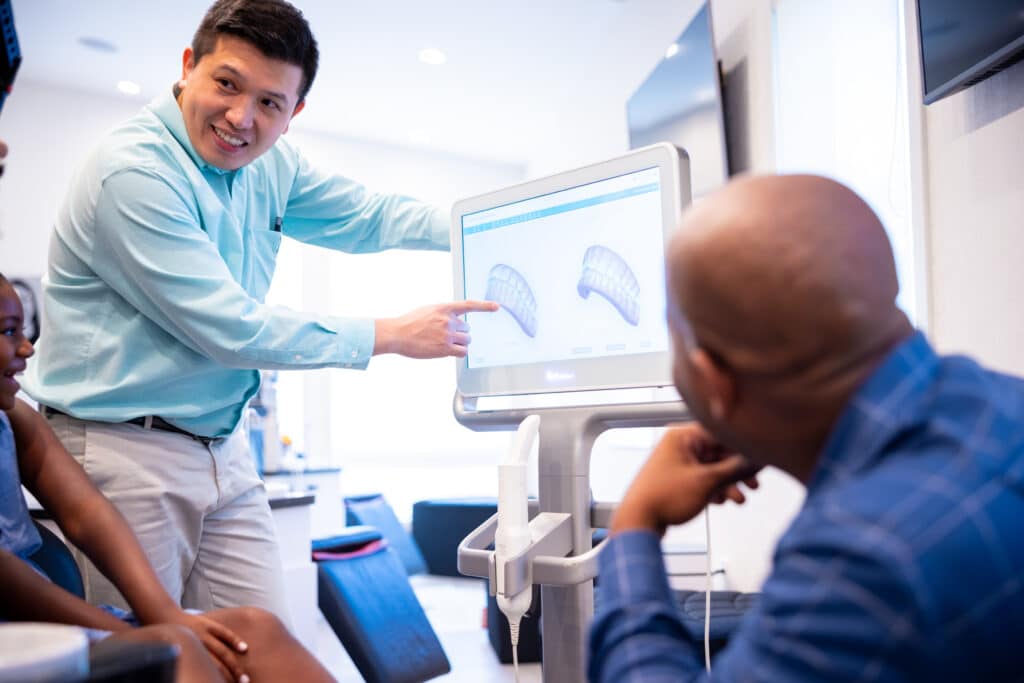
Some of our new patients come in worried that their orthodontics will actually cause a speech impediment. After all, how can you talk with all that metal or plastic in your mouth? The truth is, you may have to get used to talking with your braces or Invisalign the first few days after you get them. The good news is, it usually doesn’t last! It takes a bit of time for your mouth to get used to the feel of your new braces or Invisalign. Once it does, you should speak as you did before. You may even speak more clearly once your braces or Invisalign come off for good!
While orthodontics can eliminate the problems causing a speech impediment, it doesn’t necessarily clear that impediment up completely, especially in someone who’s older. Over time, our mouths and tongues are trained to move certain ways, and they may need a bit of retraining once the braces or Invisalign are gone. That’s where a bit of speech therapy comes in. The speech therapist can give you exercises that will retrain your tongue to move properly against your newly straightened teeth. This should improve your speech even more and possibly clear up your speech impediment.
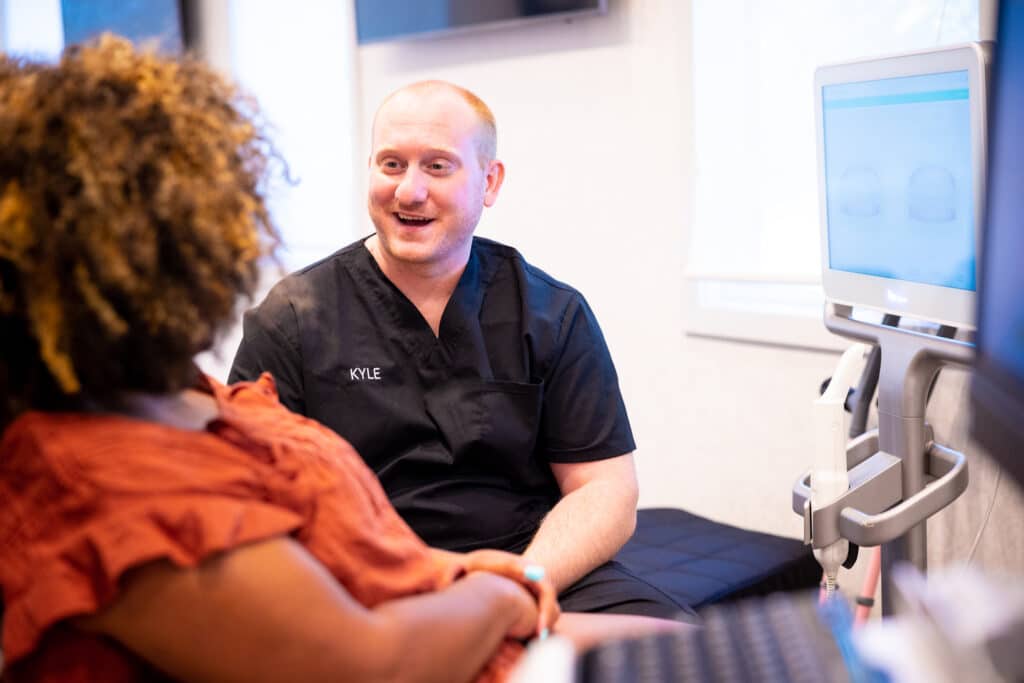
Can orthodontics help your child improve their speech? An easy way to find out is to schedule an appointment with Sacks Orthodontics! We know your time is precious, so we offer a virtual consultation that you can complete on your computer or mobile device anytime, anywhere. If you prefer to visit our office, we can schedule an in-office consultation. We can determine whether orthodontics can help your child’s speech impediment and draw up a plan that will work best for your child. Correcting your child’s teeth can improve their speech, build their confidence and give them the smile of their dreams!
